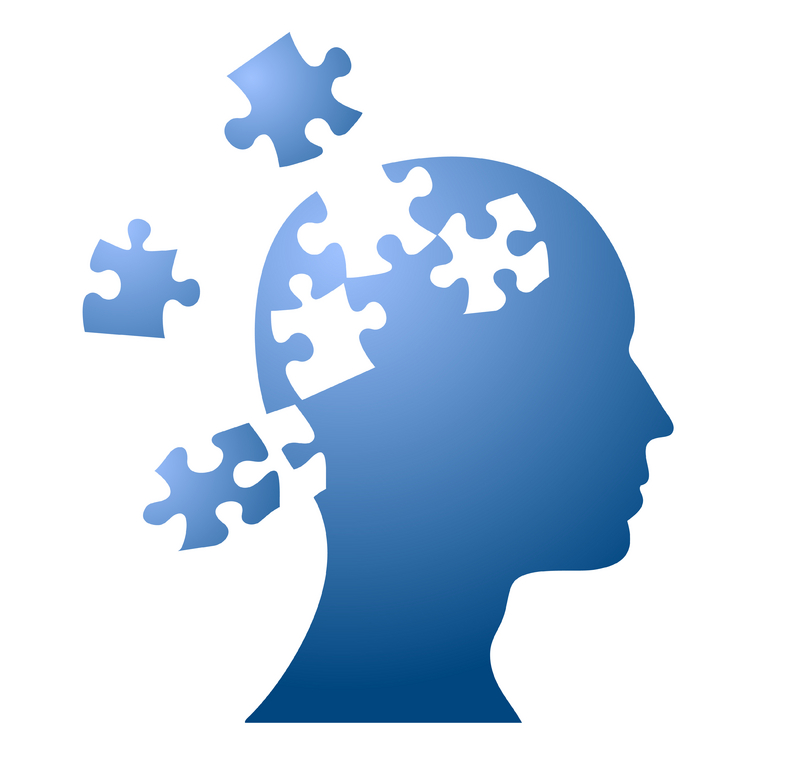Trading Places: Blind People Use Visual Brain Region for Language

A person who is born blind may be able to recruit the unused brain regions related to vision for language-related tasks, a new study has found.
"This suggests that brain regions that didn't evolve for language can nevertheless participate in language processing," said lead researcher Marina Bedny of the Massachusetts Institute of Technology. "This kind of plasticity is very dramatic: from vision to language."
In these "early blind" people, the visual areas of the brain, called the occipital cortex, are able to take on language-processing tasks, such as understanding sentences.
"Humans learn language. This is an important part of the human experience," Bedny said. "Certainly that's part of the reason why this part of the brain is involved in language."
Learning language
There are regions of the brain that have a special structure for processing language. These regions are similar in people who speak different languages (including sign language), and many researchers believe this structure must have specifically evolved to give us the ability to process language. So they assume other parts of the brain would have a more difficult time performing those functions.
Past studies showed that individuals who have never been able to see still have activity in the brain regions that process visual stimuli. The researchers noticed that these regions responded to sounds, specifically to spoken words. What they didn't know was whether the visual cortex was actually participating in language processing or was working in other ways, like forming long-term memories.
Sign up for the Live Science daily newsletter now
Get the world’s most fascinating discoveries delivered straight to your inbox.
To test this, the researchers watched the brain activity of congenitally blind people while they listened to various different spoken sounds, including sentences, jabberwocky (sentences made with non-words like florp), lists of words, and sentences played backwards. After hearing each stimulus, the participants were tested with a word, and asked if it was something they had just heard to not.
Though the backward speech and jabberwocky are more difficult to process than a sentence of normal speech, the visual cortex in these congenitally blind people reacted more to plain-English sentences, meaning it was processing things it understood as language. "This is not a generalized difficulty effect," Bedny said. "It's really sensitive to high-level linguistic structure."
Evolving from experience
The experience of being blind changes these brain areas, Bedny said. "The brain is organized as a result of experience, and experience plays a huge role in determining the functionality of different parts of the brain," she said. "The function of parts of the brain can change in ways we didn't realize."
It's possible that this additional language processing area gives these early blind people additional language abilities, though the everyday effect might be small, Bedny said."You don't see such a profound effect that it comes out in every day behavior, but if you push it you might see it," she said.
The researchers aren't sure how the brain adapts these visual regions to language processing, but there may be changes to the types of brain cells and composition of different types in that region, or changes to the architecture, or how the neurons are connected, that make the area better suited for language.
The study is a "very nice contribution" to the field, said Krish Sathian of Emory University, who wasn't involved in the research.
"Linguistic tasks do indeed recruit visual cortical activity in the early blind (but not the sighted), independent of task difficulty," Sathian told LiveScience in an e-mail.
Bedny would like to test whether this area can compensate for the loss of the classic language regions. By using magnetic stimulation to turn down the activity of the classic language regions, researchers should be able to see if the visual cortex can perform as a language center independently.
"Our prediction is that a blind individual would be more resilient to brain damage to classic language regions," Bedny said.
You can follow LiveScience staff writer Jennifer Welsh on Twitter @microbelover.
Jennifer Welsh is a Connecticut-based science writer and editor and a regular contributor to Live Science. She also has several years of bench work in cancer research and anti-viral drug discovery under her belt. She has previously written for Science News, VerywellHealth, The Scientist, Discover Magazine, WIRED Science, and Business Insider.











